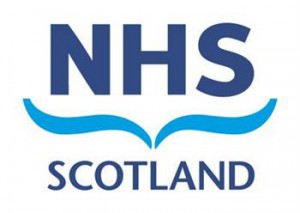
At least 204 Scots have received a total of 2,007 tattoo removal treatments, NHS Greater Glasgow and Clyde confirmed.
The figures, obtained under the Freedom of Information Act, also show that there are currently 96 patients who are receiving treatment to remove unwanted tattoos.
A patient will normally need an average of six treatments each costing up to £300.
But patients groups have it out and said the money could be better spent elsewhere.
The popularity of tattoos has soared in recent years but a growing number of people are regretting the decision.
NHS Greater Glasgow and Clyde say that the patient is only refereed after a clinical assessment when there is a “symptomatic or functional requirement” for the treatment.
They say that all cases are judged against “agreed criteria” and on an “individual basis” but they said that referral for consideration does not necessarily mean that the treatment will be offered.
But Margaret Watt, chair and marketing director of Scotland Patients Association, said: “I think the money could be better spent on getting more doctors and nurses. We don’t inflict these things on these people it’s a choice.
“Why are we spending £600,000 on taking them off for them? We are not being unkind we are being realistic here. The NHS is at breaking point as it is.
“The powers that be don’t say we want you to have a tattoo this week, it’s their choice.”
And Emma Boon of the TaxPayers’ Alliance said: “It’s madness that while some seriously ill patients are on waiting lists for months, scores of these procedures are taking place.
“At a time when the NHS needs to find savings it is ridiculous that taxpayers’ money is being spent on tattoo removal.
“Body art is a personal choice in the first place and if people have second thoughts they should face up to the consequences of their mistake and pay to have it removed themselves, not go cap-in-hand to the NHS which is busy treating sick people.”
But Doreen Trust MB, founder and director of the Disfigurement Guidance Centre, said that people with tattoos should be “considered” for removal under the NHS.
She said: “We all go through an age where we go through different things and some people might go through a different kind of foolishness.
“We have had doctors and very sensible people who go and do something and then regret it.
“I think that people should get serious consideration [for NHS tattoo removal] as it can affect them and their prospects very severely.”
Laser treatment involves ink particles being broken up by the laser and eventually cleared away by the immune system.
Indian ink and single colour tattoos are the easiest to remove and may respond to as few as two laser treatments, but it normally takes between six and eight treatment sessions per tattoo for it to disappear.
Multi-coloured tattoos by professional tattoo artists can be more difficult to remove. Green, yellow and purple pigments may prove especially stubborn.
Cheryl Cole, David Beckham and Johnny Depp are among the celebrities who made the tattoo a must-have accessory.
But even some celebrities are becoming fed up with their inked designs and are choosing to have them removed.
Actress Megan Fox says she is undergoing painful removal of a large portrait of Marilyn Monroe on her right forearm.
She was reported as saying “It’s too negative”.
And Peaches Geldof has been complaining that her father should have stopped her from getting covered in daisy-chain tattoos at the age of 14.
Other Scottish health organisations who responded, said they do not fund tattoo removal, including Shetland, Orkney, Fife and the Western Isle while Ayrshire and Arran said that patients are referred to Canniesburn Plastic Surgery Unit, Glasgow Royal Infirmary.

